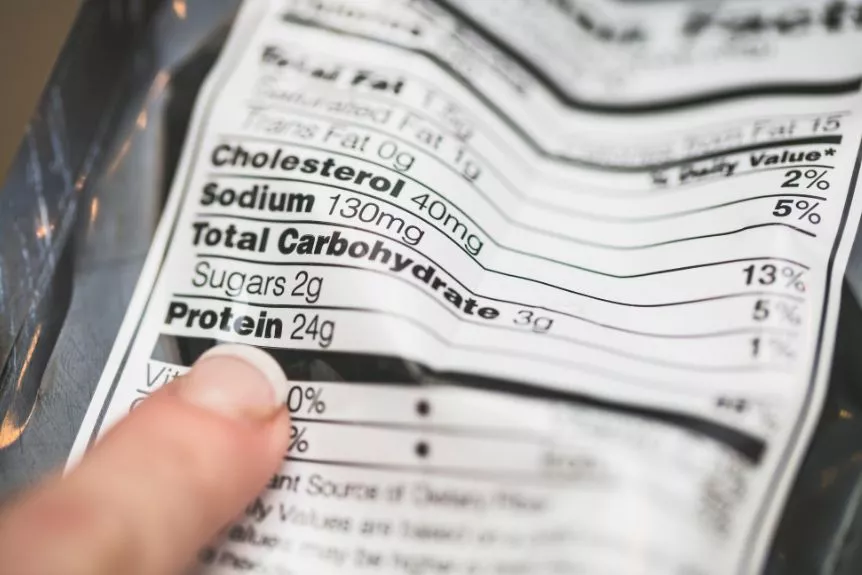
When scanning protein labels, you may find yourself overwhelmed by the array of information presented. However, understanding what to look for can be the key to making informed decisions about your dietary choices. By paying attention to not just the protein content but also the quality of protein sources and other added ingredients, you can ensure that you are nourishing your body effectively. This knowledge empowers you to navigate the sea of protein products available and select the ones that align best with your health and fitness objectives.
Importance of Protein Content
Understanding the protein content listed on labels is crucial for making informed dietary choices. When you check the protein content, you ensure that you're meeting your body's needs for tissue repair, muscle growth, and overall health. Proteins are the building blocks of the body, essential for functions like enzyme production and immune system support. By paying attention to the protein content on labels, you can tailor your diet to meet your specific health and fitness goals.
Protein labels provide information on the amount of protein per serving, allowing you to track your daily intake accurately. This information is vital for those looking to increase muscle mass or maintain a healthy weight. Additionally, understanding protein content can help you choose products that align with your dietary preferences, such as vegan or gluten-free options. By being mindful of protein labels, you empower yourself to make choices that support your overall well-being.
Key Macronutrient Ratios
When considering your dietary choices, it's essential to pay attention to the key macronutrient ratios in your food. Macronutrients, namely carbohydrates, proteins, and fats, play crucial roles in your overall health and well-being. The ratio in which you consume these macronutrients can impact your energy levels, weight management, and even your mood.
For a balanced diet, aim for a macronutrient ratio that suits your individual needs. A common recommendation is to consume around 45-65% of your daily calories from carbohydrates, 10-35% from protein, and 20-35% from fats. However, these ratios can vary based on factors such as your activity level, age, and health goals.
Understanding and maintaining the right macronutrient balance can help you optimize your nutrition and support your fitness objectives. By being mindful of the proportions of carbohydrates, proteins, and fats in your diet, you can make informed choices that promote overall health and well-being.
Quality of Protein Sources
For optimal nutrition, evaluating the quality of your protein sources is essential. When checking protein labels, focus on the type of protein listed. Look for sources like whey, casein, soy, pea, or rice protein, as these are considered high-quality proteins. These sources provide all essential amino acids needed by your body.
Whey protein, derived from milk, is a complete protein with a high biological value, making it an excellent choice for muscle building and recovery. Casein protein, also from milk, digests more slowly, providing a steady release of amino acids over time, ideal for prolonged satiety and muscle maintenance. Soy protein is plant-based and suitable for vegetarians and vegans, offering a complete protein profile.
Pea and rice proteins are also plant-based options that can be combined to form a complete protein source. They're easily digestible and hypoallergenic. When selecting protein sources, aim for variety to ensure you're getting a range of essential nutrients.
Additional Ingredients to Watch
As you scan protein labels, be mindful of additional ingredients that may impact your nutritional goals. Some protein powders contain added sugars or artificial sweeteners to enhance flavor, but these can contribute to excess calories or potentially harmful chemicals. Keep an eye out for ingredients like high fructose corn syrup, sucralose, or aspartame, as they may not align with your health objectives.
Additionally, certain protein products may include fillers, preservatives, or additives to improve texture or extend shelf life. Ingredients such as maltodextrin, carrageenan, or hydrogenated oils could be present in your protein powder, affecting its overall quality.
It's crucial to prioritize protein supplements with minimal and recognizable ingredients to support your fitness journey effectively. Choosing products with natural flavorings, minimal additives, and no unnecessary fillers can help you reach your nutritional targets without compromising on quality.




